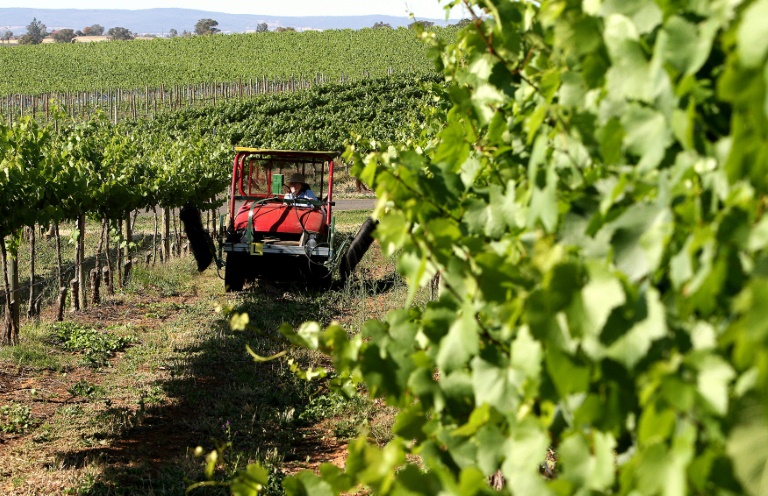The super-premium segment showed growth of 37% in volume.

Picture: AFP/GREG WOOD
In a year that will probably go down in history as one of the most challenging years ever for the South African wine industry, wine exports managed to increase 7,7% in value, according to Wines of South Africa (WoSA).
In 2020, the South African wine industry managed to export 319, 2 million liters of wine despite a five- week long ban on exports, and very significant challenges at the Cape Town Terminal in the Port of Cape Town due to the COVID-19 pandemic.
According to WoSA, exports were only 0,2% down on 2019’s export figures.
Siobhan Thompson, WoSA’s CEO, said that this could be attributed to extensive online and social media campaigns that drew a lot of awareness to the plight of the South African wine industry.
ALSO READ: Alcohol ban plunges wine and barley farmers in crisis
The overall value of the country’s wine exports increased 7,7% to R9,1 billion, of which the value of packaged wine grew 8,3%. Bulk wine also saw positive trading, with the value increasing 5% to R1,9 billion, and volumes increasing 3,7% to 181,5 million litres.
“Despite a drop in volume at lower price points, it is heartening to see continued growth in the premium segment, with wines over the R40/l price point growing steadily in value and volume,” said Thompson.
The super-premium segment showed growth of 37% in volume.
Among South Africa’s distinctive cultivars, Chenin Blanc’s export value grew 13% and Pinotage 12%. Chenin Blanc was also South Africa’s largest single export variety, with a total export volume of 48,9 million litres.
The Cap Classique category also continued to see strong growth at 17%, and was proving to be a strong category in terms of growing value and quality recognition in South Africa’s overseas markets, she said.
Commenting on the export figures, CEO of Vinpro Rico Basson, said that despite this solid performance, it did unfortunately not offset the extensive financial and job losses that was suffered due to the more than 18-week blanket ban in the domestic market where more than 55% of the country’s wine volumes were sold.
ALSO READ: Alcohol ban: Liquor traders losing an estimated R300m a day
“Of our 533 wineries, about 75% are micro-enterprises and very reliant on local sales and tourism,” Basson added.
Thompson said that WoSA remained positive that the wine industry, along with its unrivalled wine tourism offering, would return to its “usual strength” in due course.
This article was republished from Farmer’s Weekly with permission
For more news your way, download The Citizen’s app for iOS and Android.





